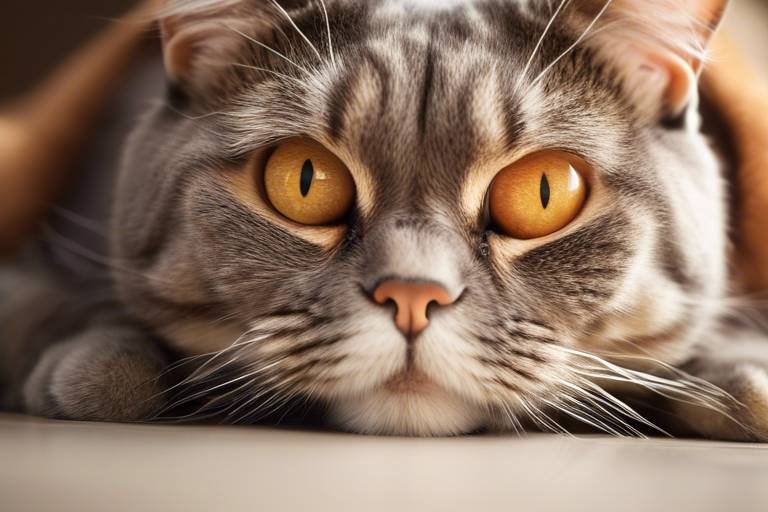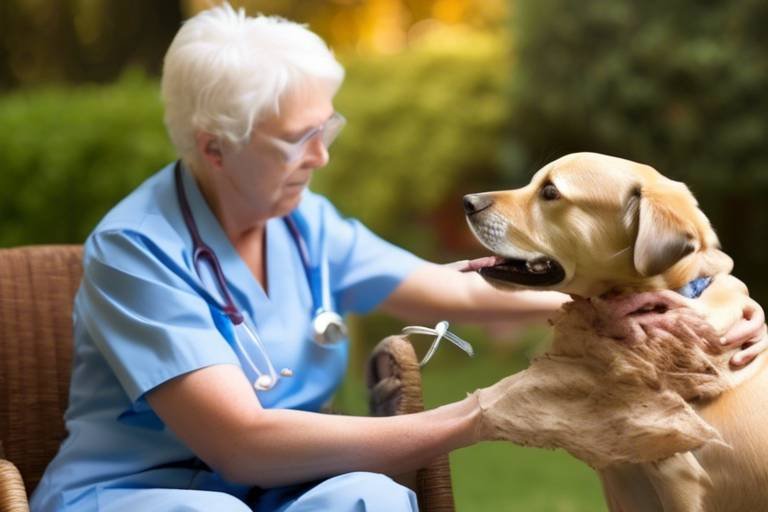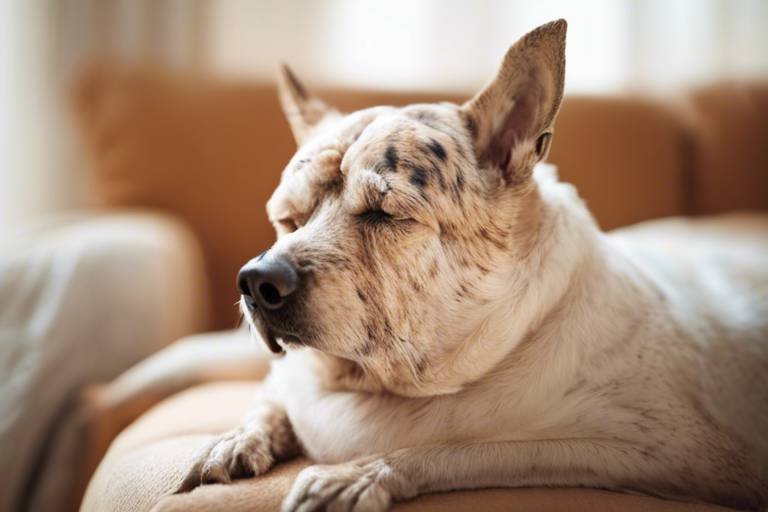The Role of Supplements in Senior Cat Health
As our feline friends gracefully age, their health needs evolve, much like how we humans experience changes as we get older. Just as a well-balanced diet is vital for our well-being, it is equally important for senior cats. This article delves into the significance of dietary supplements in enhancing the health and well-being of our beloved senior cats. With age, cats often face a myriad of health challenges, and supplements can play a crucial role in addressing these issues. From boosting their immune system to supporting joint health, the right supplements can make a world of difference in your cat’s quality of life.
Imagine your senior cat, once a sprightly kitten, now moving a bit slower and perhaps showing signs of discomfort. This shift can be alarming, but it’s essential to understand that supplements can help fill the nutritional gaps created by aging. Not only do they provide essential nutrients that may be lacking in their regular diet, but they also target specific health concerns that commonly arise in older cats. So, let’s dive deeper into the world of cat supplements and uncover how they can be a game-changer for your furry companion.
As cats age, their nutritional requirements change significantly. Senior cats often require higher levels of certain vitamins and minerals to maintain their health. For instance, they may need more antioxidants to combat oxidative stress, which can lead to chronic diseases. Additionally, essential fatty acids, like omega-3, become increasingly important for maintaining healthy skin and a shiny coat. Supplements can help meet these specific needs, ensuring your senior cat receives a balanced diet that supports their overall health.
Some key nutrients that senior cats should not miss out on include:
- Vitamin E: A powerful antioxidant that helps protect cells from damage.
- Omega-3 Fatty Acids: Vital for heart health and reducing inflammation.
- Glucosamine: Supports joint health and mobility.
Just like humans, senior cats are prone to a variety of health challenges. Some of the most prevalent conditions include:
- Arthritis: Joint pain and stiffness can make movement difficult.
- Kidney Disease: A common issue that affects many older cats, leading to a decline in overall health.
- Dental Problems: Oral health issues can cause pain and affect eating habits.
Understanding these issues is the first step in providing effective care. Supplements can play a vital role in managing these conditions, helping to alleviate discomfort and improve your cat’s quality of life.
Joint problems are a common concern for older cats. Just picture your cat, once full of energy, now struggling to jump onto their favorite perch. This is where supplements like glucosamine and omega-3 fatty acids come into play. They can support joint health, reduce inflammation, and improve mobility, allowing your furry friend to regain some of their youthful vigor. In the next sections, we will explore these supplements in more detail.
Omega-3 fatty acids are not just a buzzword; they are crucial for reducing inflammation and promoting heart health in senior cats. These essential fats can help alleviate joint pain and enhance overall well-being. By incorporating omega-3 supplements into your cat's diet, you can help them feel more comfortable and active. Think of it as giving them a little boost of energy, much like how a refreshing smoothie perks us up on a hot day!
Glucosamine is a popular supplement known for its joint-supporting properties. It works by helping to maintain the cartilage that cushions joints, thereby reducing pain and stiffness. When considering glucosamine for your senior cat, it's essential to follow dosage recommendations provided by your veterinarian to ensure safety and effectiveness. Imagine your cat regaining the ability to leap onto the couch again, all thanks to the right supplements!
A robust immune system is essential for senior cats to fend off illness and infection. Antioxidants and other supplements can help bolster immunity, providing your furry friend with the defense they need as they age. Just like how we take vitamins to stay healthy, our cats can benefit from the right supplements to keep their immune systems strong.
With a plethora of supplements available on the market, selecting the right ones for your senior cat can feel overwhelming. It’s crucial to choose high-quality products tailored to your cat's specific needs. Always look for supplements that have been tested for safety and efficacy. Consulting with your veterinarian can provide valuable insights into what might work best for your cat.
Veterinary advice is paramount when considering supplements for your senior cat. A veterinarian can help create a personalized supplement plan that addresses your cat’s unique health concerns. Think of them as your cat's health coach, guiding you through the maze of options available.
Understanding supplement labels is vital for making informed choices. Look for ingredients that are beneficial and avoid those that could pose potential allergens. A quick glance at the label can save you from selecting a product that might not be suitable for your furry friend.
Q: How do I know if my cat needs supplements?
A: If your senior cat is showing signs of discomfort, lethargy, or has specific health issues, it's wise to consult your veterinarian. They can recommend appropriate supplements based on your cat's health status.
Q: Are all supplements safe for cats?
A: Not all supplements are created equal. It's essential to choose high-quality products and consult with your veterinarian to ensure they are safe and beneficial for your cat.
Q: How long does it take to see results from supplements?
A: The timeframe can vary depending on the supplement and the specific health issue. Some cats may show improvement within a few weeks, while others may take longer. Patience and consistency are key!
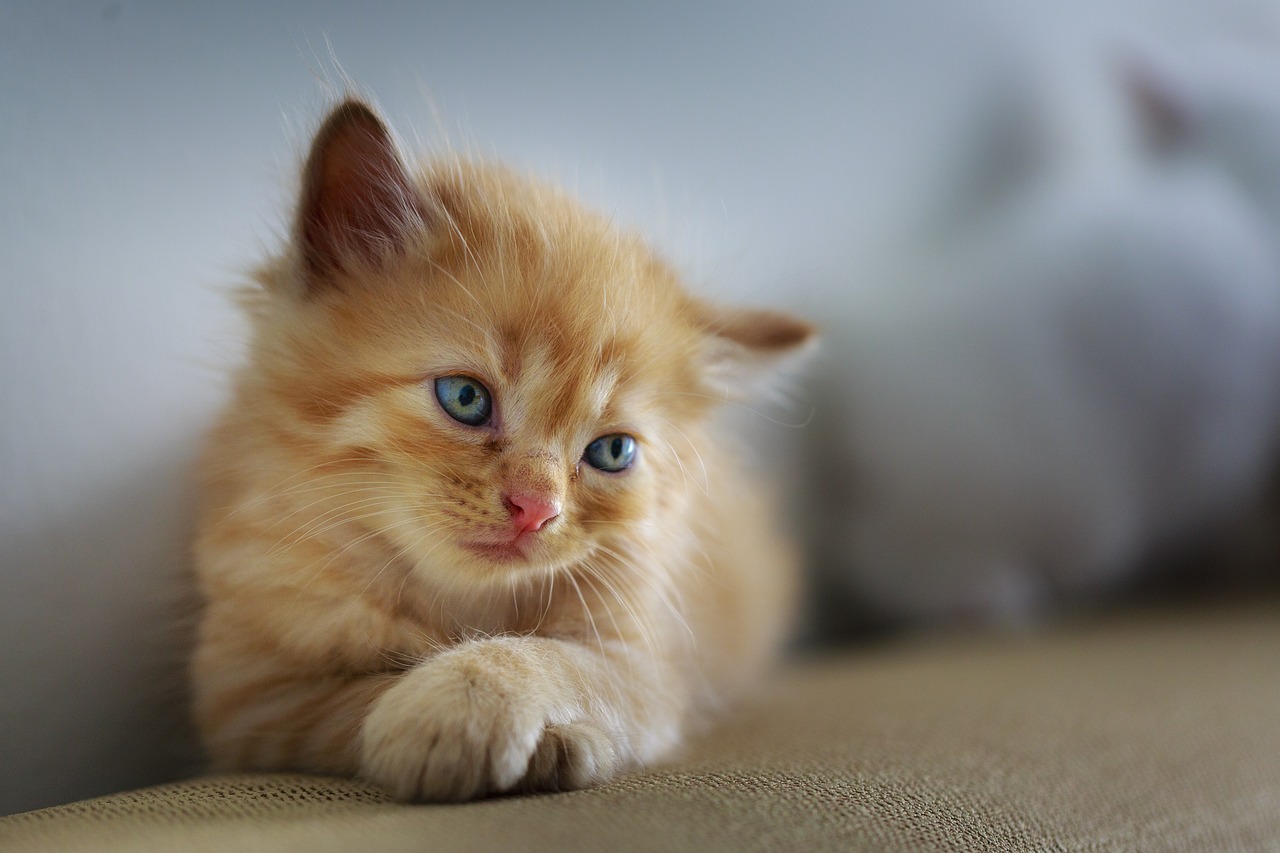
Understanding Nutritional Needs
As our feline friends gracefully age, their bodies undergo a myriad of changes, much like a fine wine evolving in flavor over the years. With these changes come new nutritional requirements that are essential for maintaining their health and vitality. Senior cats often need a diet richer in certain vitamins and minerals to support their aging bodies. So, what exactly do these furry companions need to thrive in their golden years?
First off, it's crucial to understand that senior cats may require an increase in protein to help maintain muscle mass, which can decline with age. This protein should come from high-quality sources to ensure they are getting the essential amino acids needed for optimal health. Additionally, taurine, an amino acid, becomes even more vital as it supports heart health and overall well-being. A deficiency in taurine can lead to serious health issues, so ensuring your cat's diet is rich in this nutrient is paramount.
Another critical nutrient is omega-3 fatty acids, which can be found in fish oil. These fatty acids are known for their anti-inflammatory properties and can significantly aid in joint health, which is often a concern for older cats. To top it off, vitamins such as Vitamin E and Vitamin C are essential for their antioxidant properties, helping to combat the effects of aging and support a robust immune system.
Moreover, senior cats may also face challenges with their digestive health. This is where fiber comes into play. Adequate fiber helps in maintaining a healthy gut, preventing constipation, and promoting overall digestive health. A balanced diet that includes both soluble and insoluble fiber can make a world of difference for your senior cat.
To summarize, here are the key nutrients that should be included in your senior cat's diet:
- High-quality protein to maintain muscle mass
- Taurine for heart health
- Omega-3 fatty acids for joint support
- Vitamins E and C for antioxidant protection
- Fiber to support digestive health
Understanding these nutritional needs is the first step in ensuring that your senior cat lives a long, healthy, and happy life. It’s like giving them a little boost of energy and comfort as they gracefully navigate through their golden years. But remember, every cat is unique, and their needs may vary. Therefore, it's always a good idea to consult with your veterinarian to tailor a diet that best suits your furry friend.

Common Health Issues in Senior Cats
As our feline friends age, they often face a myriad of health challenges that can significantly impact their quality of life. It's essential for cat owners to be aware of these common issues to provide the best care possible. One of the most prevalent conditions among senior cats is arthritis. This degenerative joint disease can lead to pain, stiffness, and decreased mobility, making it difficult for cats to engage in their usual activities, like jumping or playing. Imagine how frustrating it would be for your cat to want to chase a toy but be unable to do so due to discomfort!
Another significant concern is kidney disease, which is particularly common in older cats. The kidneys play a crucial role in filtering toxins from the bloodstream, and when they begin to fail, it can lead to serious health issues. Symptoms may include increased thirst, frequent urination, and weight loss. Regular veterinary check-ups are vital for early detection and management of this condition.
Additionally, senior cats often experience dental problems. As they age, they may develop gum disease or tooth decay, which can lead to pain and difficulty eating. It's not just about keeping their teeth clean; dental health is directly linked to their overall well-being. Poor dental hygiene can lead to infections that affect other organs, including the heart!
To give you a clearer picture, here’s a quick overview of these common health issues:
| Health Issue | Symptoms | Potential Impact |
|---|---|---|
| Arthritis | Pain, stiffness, decreased mobility | Reduced activity, weight gain, behavioral changes |
| Kidney Disease | Increased thirst, frequent urination, weight loss | Toxin buildup, lethargy, potential organ failure |
| Dental Problems | Pain when eating, bad breath, gum swelling | Infections, difficulty eating, systemic health issues |
Understanding these health issues is crucial for providing appropriate care. Supplements can play a vital role in managing these conditions. For instance, joint supplements can help alleviate the discomfort associated with arthritis, while specific nutrients can support kidney function and improve oral health. By being proactive and paying attention to your senior cat's health, you can help them lead a happier, more comfortable life.
Q1: How can I tell if my senior cat is in pain?
A: Signs of pain in cats can include changes in behavior, reluctance to move, vocalization, and changes in grooming habits. If you notice any of these signs, consult your veterinarian.
Q2: Are there specific supplements I should consider for my senior cat?
A: Yes, supplements like omega-3 fatty acids for joint health and antioxidants for immune support can be beneficial. Always consult your vet for personalized recommendations.
Q3: How often should I take my senior cat to the vet?
A: Senior cats should ideally have a veterinary check-up at least twice a year to monitor their health and catch any potential issues early.
Joint Health and Mobility
As our feline friends age, it’s not just their whiskers that turn gray; their joints can start to creak and groan, too. For senior cats, joint health is a significant concern, as they may develop conditions like arthritis, which can lead to discomfort and reduced mobility. Imagine your cat, once a sprightly little hunter, now hesitant to leap onto their favorite perch or chase a toy. This can be heartbreaking for both the pet and the owner. But fear not! There are ways to help your beloved companion regain some of that lost agility.
One of the most effective ways to support joint health in senior cats is through dietary supplements. Glucosamine and omega-3 fatty acids are two of the most notable supplements that can make a world of difference. Glucosamine is a natural compound found in cartilage, and it works by helping to rebuild and maintain healthy cartilage in the joints. On the other hand, omega-3 fatty acids are known for their anti-inflammatory properties, which can alleviate pain and stiffness associated with joint issues.
Moreover, the combination of these supplements can create a powerful synergy. When glucosamine works to repair the cartilage, omega-3 fatty acids help to reduce the inflammation that often accompanies joint problems. It’s like having a dynamic duo working tirelessly to keep your cat comfortable and active. To put it simply, if your cat is experiencing joint discomfort, incorporating these supplements into their diet can be akin to giving them a new lease on life!
Let’s dive a little deeper into the benefits of these supplements:
| Supplement | Benefits |
|---|---|
| Glucosamine |
|
| Omega-3 Fatty Acids |
|
When considering these supplements, it’s essential to consult with your veterinarian to determine the appropriate dosage and form for your cat. Some cats may benefit from liquid supplements, while others might prefer chewable tablets. The key is to find a product that your cat will readily accept. After all, if they won’t eat it, it won’t do them any good!
In conclusion, maintaining joint health is crucial for the quality of life of senior cats. By incorporating glucosamine and omega-3 fatty acids into their diet, you can help your furry friend regain their youthful bounce and zest for life. Remember, a happy cat is a healthy cat, and with the right supplements, you can support their journey into their golden years with grace and comfort.
- How do I know if my cat needs joint supplements? Look for signs of stiffness, reluctance to jump, or changes in behavior. If in doubt, consult your vet.
- Are there any side effects of joint supplements? Most cats tolerate glucosamine and omega-3s well, but always consult your vet for personalized advice.
- How long does it take to see results from joint supplements? Improvements can often be seen within a few weeks, but it may take longer depending on the severity of the joint issues.
Benefits of Omega-3 Fatty Acids
When it comes to the health of senior cats, omega-3 fatty acids are nothing short of a miracle worker. You might be wondering, "What exactly are omega-3 fatty acids, and why should I care?" Well, these essential fats are crucial for maintaining overall health and well-being, especially in our aging feline companions. They play a significant role in reducing inflammation, which is often a major culprit behind many health issues in senior cats.
One of the standout benefits of omega-3 fatty acids is their ability to support joint health. As cats grow older, they can suffer from arthritis and joint pain, making it difficult for them to move around comfortably. By incorporating omega-3 supplements into their diet, you can help alleviate some of that discomfort. These fatty acids work by reducing inflammation in the joints, allowing your cat to regain some of their lost mobility and zest for life.
But that's not all. Omega-3 fatty acids are also known to promote heart health. Senior cats are at a greater risk for cardiovascular issues, and these essential fats can help maintain a healthy heart by improving circulation and reducing blood pressure. Imagine omega-3s as little superheroes, swooping in to protect your cat's heart and keep it strong. Furthermore, they can enhance cognitive function, which is particularly important as cats age. Just like humans, cats can experience cognitive decline, and omega-3s can help support brain health, keeping your feline friend sharp and alert.
In addition to these benefits, omega-3 fatty acids can also improve skin and coat health. Senior cats often struggle with dry skin and dull fur, but omega-3s can help hydrate the skin and promote a shiny, healthy coat. Think of it as a beauty treatment that not only makes your cat look good but also feel good!
Now, you might be curious about how to incorporate these beneficial fats into your cat's diet. Omega-3 fatty acids can be found in various forms, including fish oil and algae-based supplements. It's essential to choose high-quality products that are specifically formulated for pets. Always consult your veterinarian for guidance on the appropriate dosage and to ensure that the supplement aligns with your cat's unique health needs.
In summary, omega-3 fatty acids are a powerhouse of health benefits for senior cats. From reducing inflammation and supporting joint and heart health to enhancing cognitive function and promoting a beautiful coat, these essential fats are a valuable addition to your senior cat's diet. So, if you want to give your furry friend the gift of health and vitality in their golden years, consider adding omega-3 supplements to their daily routine.
Glucosamine for Joint Support
As our beloved feline companions age, their joints often become less forgiving, leading to discomfort and reduced mobility. This is where glucosamine steps in as a hero in the supplement world. Glucosamine is a natural compound found in the body, primarily in cartilage, and plays a crucial role in maintaining joint health. For senior cats, glucosamine can be a game changer, helping to alleviate the pain associated with conditions like arthritis. Imagine your cat, once a spry little hunter, now struggling to leap onto the couch. With the right glucosamine supplement, you can help restore some of that youthful vigor.
One of the most remarkable aspects of glucosamine is its ability to promote the repair and regeneration of cartilage. This is particularly important for senior cats, who may experience a breakdown of cartilage over time. By supplementing with glucosamine, you can provide your cat with the support they need to maintain their mobility and overall quality of life. But how do you know if your cat needs glucosamine? Look for signs such as difficulty jumping, stiffness after resting, or a reluctance to engage in play. If you notice these symptoms, it might be time to consider adding glucosamine to their diet.
When choosing a glucosamine supplement, it's essential to consider the dosage and form. Glucosamine is available in various forms, including tablets, powders, and liquids. The dosage usually depends on your cat's weight and specific health needs. It's always best to start with a lower dose and gradually increase it, monitoring your cat's response along the way. A typical dosage might look like this:
| Cat Weight (lbs) | Recommended Dosage (mg) |
|---|---|
| 5-10 | 250-500 |
| 11-15 | 500-750 |
| 16+ | 750-1000 |
It's important to remember that while glucosamine can significantly improve your cat's joint health, it should not be seen as a standalone solution. Instead, it should be part of a comprehensive approach to your senior cat's health, which includes a balanced diet, regular vet check-ups, and appropriate exercise. Think of glucosamine as a supportive teammate in your cat's journey to a healthier, more active life.
In conclusion, glucosamine is not just another supplement; it's a vital ally in the battle against joint pain and mobility issues in senior cats. By providing your furry friend with glucosamine, you can help them reclaim their playful spirit and enjoy their golden years to the fullest. Remember, always consult with your veterinarian before starting any new supplement regimen to ensure it's the right fit for your cat's unique needs.
1. How long does it take for glucosamine to work?
Most cats will start to show improvement within a few weeks of starting glucosamine supplements. However, it may take longer for some cats, depending on their specific condition.
2. Can I give my cat human glucosamine supplements?
It's best to use supplements specifically formulated for cats, as human supplements may contain ingredients that are harmful to felines.
3. Are there any side effects of glucosamine?
Glucosamine is generally well-tolerated, but some cats may experience mild gastrointestinal upset. Always monitor your cat for any unusual reactions after starting a new supplement.
4. Can glucosamine be given alongside other medications?
Consult your veterinarian before combining glucosamine with other medications to ensure there are no potential interactions.
Boosting Immune System Function
As our beloved feline companions age, their immune systems can become less effective, making them more susceptible to illnesses and infections. Just like humans, senior cats need a little extra help to keep their defenses strong and ready to fight off any unwanted invaders. This is where dietary supplements come into play, providing essential nutrients that can bolster immune function and enhance overall health.
One of the key players in boosting a senior cat's immune system is antioxidants. These powerful compounds help neutralize free radicals, which can cause cellular damage and lead to various health issues. Common antioxidants found in supplements include vitamins C and E, selenium, and beta-carotene. By incorporating these into your senior cat's diet, you're not just feeding them; you're fortifying their body against potential threats.
Another important aspect of immune health is the inclusion of probiotics. These beneficial bacteria help maintain a healthy gut flora, which is crucial for optimal digestion and nutrient absorption. A healthy gut can significantly influence a cat's immune response. When the gut is balanced, it can produce antibodies and other immune factors more effectively. So, think of probiotics as the little soldiers that help keep your senior cat's internal army strong!
Furthermore, certain supplements can target specific health concerns that might arise in older cats. For instance, omega-3 fatty acids not only support heart health but also have anti-inflammatory properties that can enhance immune responses. These fatty acids can be found in fish oil supplements, which can be an excellent addition to your cat's diet. They work by modulating the immune system and reducing chronic inflammation, ultimately leading to a healthier and more vibrant feline.
When considering supplements for your senior cat, it's essential to choose high-quality products that are specifically formulated for their needs. Look for brands that prioritize transparency in their labeling and ingredient sourcing. A solid product will list all active ingredients, their sources, and any potential allergens. This ensures that you know exactly what you're giving your furry friend and can make informed decisions about their health.
In summary, boosting your senior cat's immune system is not just about adding supplements; it's about creating a holistic approach to their health. By incorporating antioxidants, probiotics, and omega-3 fatty acids into their diet, you can help them maintain a robust immune system, keeping them active and playful well into their golden years. Remember, a healthy cat is a happy cat!
- What are the signs of a weakened immune system in senior cats? Look for increased susceptibility to infections, lethargy, and changes in appetite or behavior.
- How can I tell if a supplement is right for my cat? Consult with your veterinarian and consider your cat's specific health needs and dietary requirements.
- Are there any side effects to giving my cat supplements? While most supplements are safe, some may cause gastrointestinal upset or allergic reactions. Always monitor your cat after introducing a new supplement.
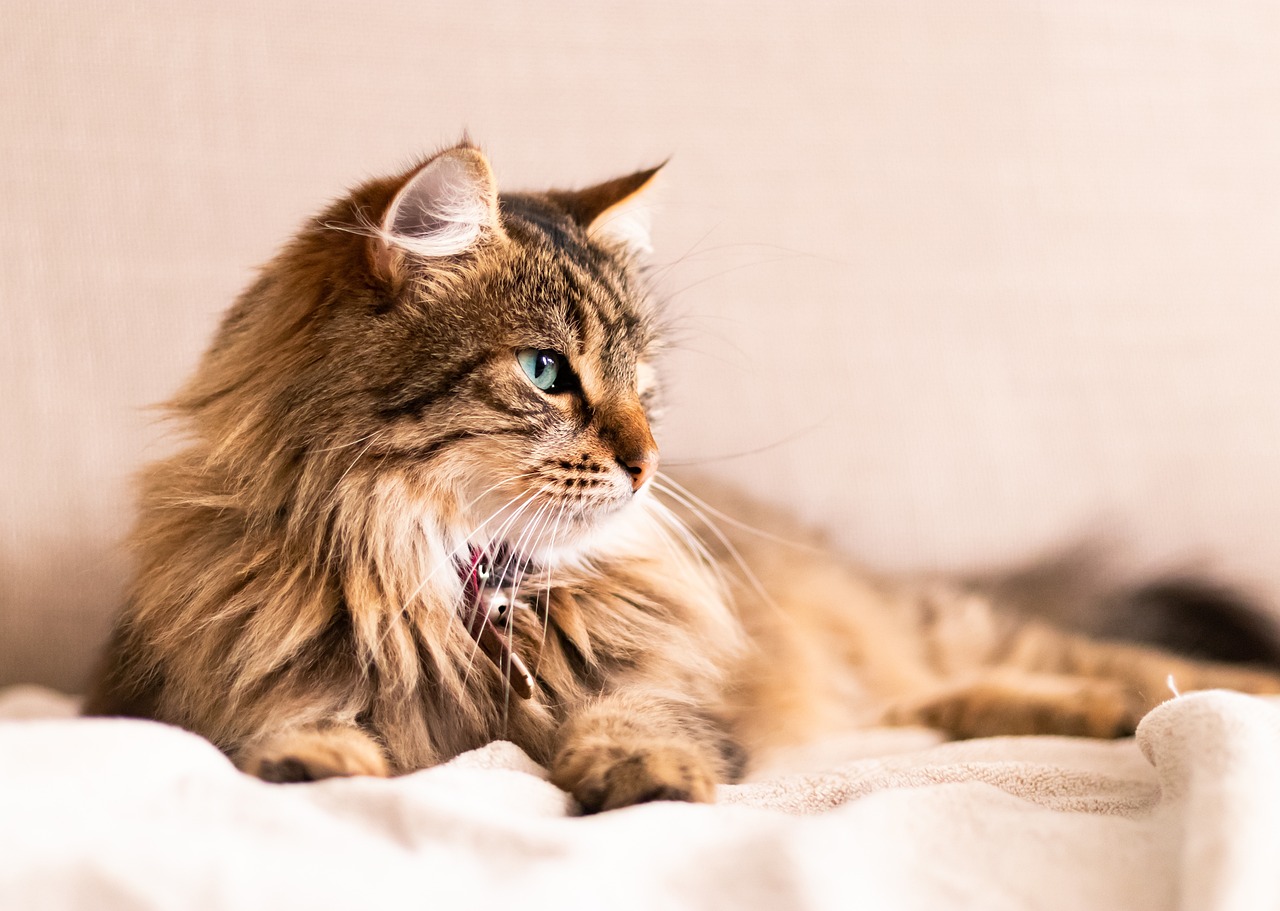
Choosing the Right Supplements
When it comes to for your senior cat, the task can feel a bit like navigating a maze. With so many options available, it's easy to get overwhelmed. But fear not! Understanding your cat's specific needs and the benefits of various supplements can help you make an informed decision. First and foremost, it's essential to consider your cat's age, health conditions, and dietary habits. Just like humans, cats have unique nutritional requirements that evolve as they age. For instance, a cat suffering from arthritis may benefit from joint-supporting supplements, while another cat might need immune-boosting antioxidants.
Before diving into the supplement aisle, it's wise to consult with your veterinarian. They can provide personalized recommendations based on your cat's health status. This step is crucial because not all supplements are created equal. Some may contain fillers or low-quality ingredients that could do more harm than good. Therefore, seeking professional advice can save you from making costly mistakes.
Once you have the green light from your vet, the next step is to educate yourself about the various supplements available. Here are a few key factors to consider:
- Quality of Ingredients: Look for high-quality, natural ingredients. Supplements should be free from artificial additives and preservatives.
- Specific Health Needs: Identify the particular health issues your cat is facing. This will guide you in selecting the right supplements.
- Dosage Instructions: Pay attention to the recommended dosages. Over-supplementation can lead to adverse effects.
- Brand Reputation: Opt for reputable brands that provide transparent information about their products.
Additionally, reading labels is an essential skill when choosing supplements. Understanding the ingredient list can help you identify potential allergens and ensure that the product aligns with your cat's dietary needs. For example, if your cat has a history of food allergies, make sure to avoid any ingredients that could trigger a reaction.
To make the process easier, consider creating a simple table to compare different supplement brands and their features. Here's a sample layout:
| Brand | Type of Supplement | Key Ingredients | Recommended For |
|---|---|---|---|
| Brand A | Joint Support | Glucosamine, Chondroitin | Arthritis |
| Brand B | Immune Booster | Vitamin C, Echinacea | General Health |
| Brand C | Omega-3 | Fish Oil, Flaxseed | Heart Health |
In conclusion, the journey to finding the right supplements for your senior cat doesn't have to be daunting. By consulting with your veterinarian, understanding your cat's unique needs, and being diligent about reading labels, you can confidently choose supplements that enhance your furry friend's quality of life. Remember, your cat relies on you to make informed decisions that will keep them healthy and happy!
Q: How do I know if my cat needs supplements?
A: If your cat is experiencing health issues or showing signs of aging, such as decreased energy or mobility, it may be beneficial to consult your veterinarian about potential supplements.
Q: Are all supplements safe for my cat?
A: Not all supplements are safe. It's crucial to choose high-quality products and consult with your veterinarian to ensure they are appropriate for your cat's specific health needs.
Q: How long does it take to see results from supplements?
A: The time frame for seeing results can vary depending on the type of supplement and your cat's individual health condition. Some may show improvement within a few weeks, while others might take longer.
Q: Can I give my cat human supplements?
A: It's not recommended to give your cat human supplements without consulting your veterinarian, as some ingredients can be harmful to cats.
Consulting with Veterinarians
When it comes to the health of your senior cat, one of the most important steps you can take is to consult with a veterinarian. Just like humans, cats have unique health needs that evolve as they age. A veterinarian can provide invaluable insights tailored specifically to your furry friend's condition. They can assess your cat's overall health, identify any underlying issues, and recommend the most appropriate supplements to enhance their well-being.
Imagine trying to navigate a maze without a map; that’s what it feels like for many pet owners when it comes to selecting the right supplements. With a plethora of options available on the market, it’s easy to feel overwhelmed. This is where your vet comes in handy. They can help you understand which supplements can effectively meet your cat's specific needs, whether it’s for joint health, immune support, or overall vitality.
During your consultation, be prepared to discuss your cat's current diet, lifestyle, and any health concerns you may have noticed. Your veterinarian may ask questions such as:
- Has your cat been more lethargic than usual?
- Are there any changes in their eating or drinking habits?
- Have you noticed any signs of discomfort or pain, especially when moving?
These questions can help your vet paint a clearer picture of your cat's health status. Based on this information, they can recommend specific supplements that could be beneficial. For example, if your cat is showing signs of arthritis, your vet may suggest glucosamine or omega-3 fatty acids to help ease their discomfort and improve mobility.
Additionally, it’s essential to discuss the dosage and administration of any supplements. Just like with medications, the right dosage can vary based on your cat's weight, age, and health status. Your veterinarian will guide you on how to safely introduce new supplements into your cat's routine and monitor their response.
Remember, while it might be tempting to rely on online reviews or recommendations from friends, every cat is different. What works wonders for one may not be suitable for another. Therefore, a personalized approach, guided by your veterinarian, is crucial for ensuring your senior cat receives the best care possible.
In conclusion, consulting with a veterinarian is not just a good idea; it's a necessary step in ensuring your senior cat leads a healthy and fulfilling life. By working together, you can create a tailored supplement plan that addresses their unique health needs and enhances their quality of life.
- How often should I take my senior cat to the vet? Regular check-ups, ideally every 6 months, are recommended for senior cats to monitor their health.
- Are all supplements safe for cats? No, not all supplements are safe. Always consult your vet before introducing any new supplement.
- Can I give my cat human supplements? It's best to avoid giving human supplements to cats unless specifically recommended by your veterinarian.
Reading Labels and Ingredients
When it comes to choosing the right supplements for your senior cat, understanding how to read labels and ingredients is absolutely crucial. Just like when you shop for your own health, you want to ensure that what you're giving your feline friend is not only safe but also effective. So, what should you be looking for? First off, always check for the active ingredients. These are the components that provide the health benefits you’re seeking, whether it’s glucosamine for joints or omega-3 fatty acids for heart health.
Next, pay attention to the dosage recommendations. Each supplement will have specific instructions based on your cat’s weight and health conditions. Overdosing can be harmful, so it's essential to follow these guidelines closely. If you find yourself scratching your head over the recommended dosage, don’t hesitate to consult your vet—they're your best ally in ensuring your kitty gets the right amount.
Another important aspect is to look for quality assurance seals on the packaging. These seals indicate that the product has undergone rigorous testing for purity and potency. It’s like a badge of honor, ensuring that what’s inside the bottle matches what’s on the label. If a product lacks this seal, it might be worth doing a little extra research.
Furthermore, it’s essential to be aware of potential allergens that could affect your senior cat. Ingredients like wheat, corn, and soy can be problematic for some cats, especially as they age. Reading through the ingredient list can help you identify any components that might not sit well with your furry friend. If you’re unsure, consider keeping a list of known allergens handy when shopping.
Lastly, be cautious of filler ingredients. Some products may include unnecessary additives that don’t contribute to your cat’s health. These fillers can dilute the effectiveness of the active ingredients. A good rule of thumb is to choose supplements with minimal and recognizable ingredients. If you can’t pronounce it, it might not belong in your cat’s diet!
To summarize, here are the key points to remember when reading labels and ingredients:
- Active Ingredients: Look for the components that provide health benefits.
- Dosage Recommendations: Follow the guidelines based on your cat's weight and health.
- Quality Assurance Seals: Ensure the product has been tested for purity and potency.
- Potential Allergens: Check for ingredients that could cause adverse reactions.
- Avoid Fillers: Choose products with minimal and recognizable ingredients.
By paying close attention to these factors, you can make informed decisions that will help enhance your senior cat's health and happiness. Remember, when it comes to your beloved pet, quality matters!
Frequently Asked Questions
- What supplements are essential for senior cats?
As cats age, their nutritional needs change significantly. Essential supplements for senior cats often include glucosamine for joint support, omega-3 fatty acids for reducing inflammation and promoting heart health, and antioxidants to bolster the immune system. Each of these plays a crucial role in maintaining your cat's overall health and well-being.
- How do I know if my cat needs supplements?
If your senior cat shows signs of decreased mobility, weight loss, or changes in appetite, it may be time to consider supplements. A consultation with your veterinarian can help determine if dietary adjustments or supplements are necessary based on your cat's specific health needs and conditions.
- Are there any risks associated with giving supplements to my cat?
Yes, while supplements can be beneficial, they can also pose risks if not administered correctly. Over-supplementation can lead to toxicity or adverse reactions. Always consult with your veterinarian before starting any new supplement regimen to ensure it's safe and appropriate for your cat's health status.
- How can I choose the right supplements for my senior cat?
Choosing the right supplements involves understanding your cat's specific health issues and nutritional needs. Look for high-quality products with clear labels, and consider consulting your veterinarian for recommendations tailored to your cat's health condition and lifestyle.
- What should I look for on supplement labels?
When reading supplement labels, pay attention to the ingredient list, dosages, and any potential allergens. Ensure that the supplements are formulated specifically for cats and check for third-party testing to guarantee quality and safety.
- Can supplements replace a balanced diet for my senior cat?
No, supplements should not replace a balanced diet. They are intended to complement your cat's nutrition, filling in gaps where necessary. A well-rounded diet remains the foundation of your cat's health, while supplements can provide additional support as needed.
- How long does it take to see results from supplements?
The time it takes to see results can vary depending on the type of supplement and your cat's individual health condition. Some cats may show improvements within a few weeks, while others might take longer. Consistency is key, so be patient and monitor your cat's progress closely.

